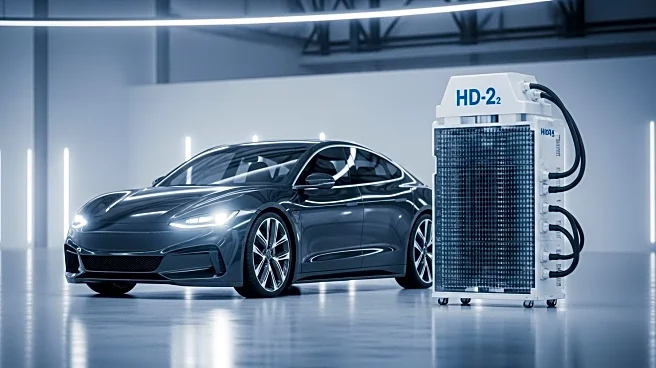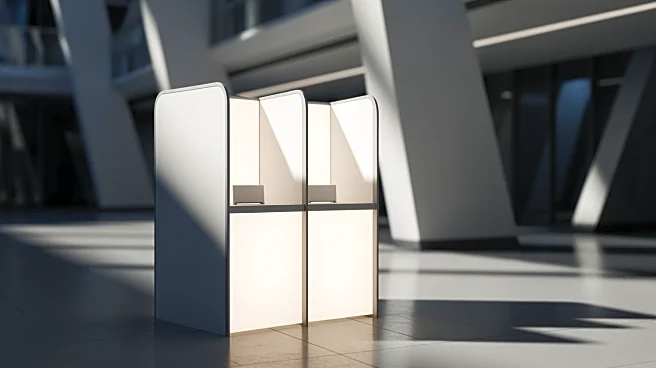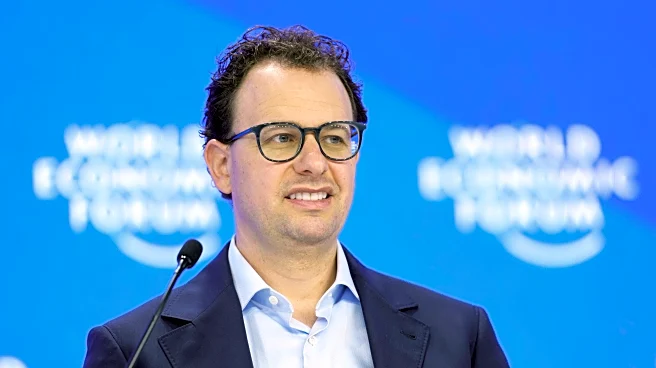What's Happening?
BMW is investing $1.7 billion in its Spartanburg plant to transition from internal combustion engines to electric vehicle (EV) and hydrogen fuel cell production by 2030. This move is part of BMW's broader strategy to enhance its position in the EV market through localized manufacturing and modular battery technology. The investment includes a $700 million battery plant co-developed with CATL and Envision AESC, producing Gen6 batteries with higher energy density and lower emissions. BMW's Neue Klasse platform, set to debut in 2026, aims to offer improved range, faster charging, and AI-integrated design.
Why It's Important?
BMW's investment reflects a significant shift in the automotive industry towards electrification and sustainability. By focusing on localized production and modular battery technology, BMW aims to mitigate risks associated with global supply chain disruptions and enhance cost efficiency. This strategy positions BMW to compete effectively in the evolving EV market, potentially influencing industry standards and consumer preferences. The move also highlights the growing importance of sustainability in automotive manufacturing, with BMW setting ambitious targets for reducing emissions and improving energy efficiency.
Beyond the Headlines
BMW's approach to electrification emphasizes risk management through geographic diversification and localized production. By expanding battery manufacturing in Spain and Hungary, BMW reduces exposure to supply chain disruptions. The company's AI-driven quality control and energy-efficient systems further enhance cost efficiency and sustainability. This strategic execution may provide BMW with a competitive edge in the global EV market, as it balances technological innovation with fiscal prudence.










